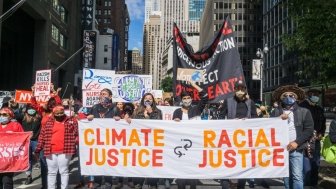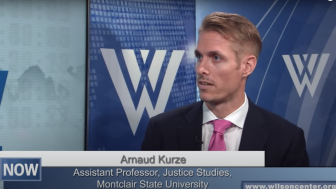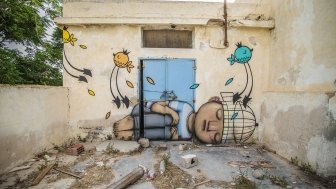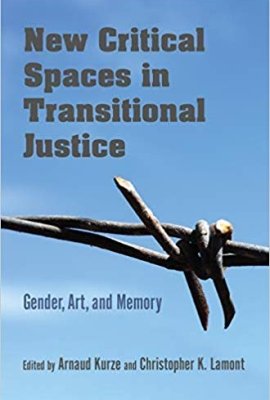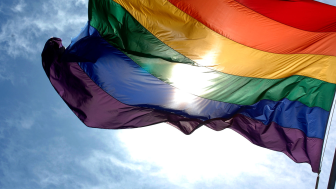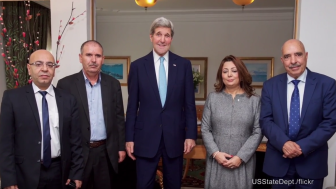Professional Affiliation
Associate Professor of Justice Studies, Montclair State University
Expert Bio
Arnaud Kurze is Associate Professor of Justice Studies at Montclair State University. His scholarship on transitional justice in the post-Arab Spring world focuses particularly on youth activism, art and collective memory. He is currently working on an international digital archives collaboration called Project AROS, aimed at improving the visualization of historical documents and data. Furthermore, he directs Project AROS Lab, a collaborative, virtual space providing researchers and students with an opportunity to conduct policy-related work to address interdisciplinary, global issues. He is widely published, including the co-authored book Mapping Global Justice: Perspectives, Cases and Practice and edited volume, New Critical Spaces in Transitional Justice: Gender, Art & Memory. He is the recipient of numerous awards and fellowships, including the American Council on Learned Societies, Fulbright, the Library of Congress, and Sciences Po.
Wilson Center Project
Transitional Justice 2.0: Youth, Art and Alternative Justice Spaces
Project Summary
The project "Transitional Justice 2.0" explores alternative transitional justice practices in post-conflict contexts, particularly concentrating on the role of art and the impact of social movements to address human rights abuses. Drawing on the former Yugoslavia, post-Mubarak Egypt and post-authoritarian Tunisia, the project scrutinizes the work of contemporary youth activists and artists to deal with the past and foster sociopolitical change. The research draws on in-depth interviews with youth activist leaders across the former Yugoslavia, Egypt and Tunisia focusing on their performance-based campaigns. Additional data was collected from content analysis—including media coverage, policy briefs and reports— and online-based prosopography. The latter consists of studying common characteristics of these activists by means of a collective study of their lives and careers. In his findings, the author explains why the emergence of transitional justice youth activism in the Balkans and North Africa falls short of the significant institutional reforms of earlier youth movement mobilizations in the regions. He also throws light on why their performance activism is distinct from practices of older, established human rights organizations. Notwithstanding, he argues that the recent performance activism has fueled the creation of new forms of deliberation to contest the culture of impunity and challenge the politics of memory in post-authoritarian and post-conflict contexts.
Major Publications
Mapping Global Justice: Perspectives, Cases and Practice (link, Routledge, ISBN: 9780367699116)
Persistent international conflicts, increasing inequality in many regions or the world, and acute environmental and climate-related threats to humanity call for a better understanding of the processes, actors and tools available to face the challenges of achieving global justice. This book offers a broad and multidisciplinary survey of global justice, bridging the gap between theory and practice by connecting conceptual frameworks with a panoply of case studies and an in-depth discussion of practical challenges. Connecting these critical aspects to larger moral and ethical debates is essential for thinking about large, abstract ideas and applying them directly to specific contexts.
Breaking the Transitional Justice Machine: Exploring Spatiality, Space Travel, and Inbetween Spaces in Research Practice, (2021) Political Anthropological Research on International Social Sciences (PARISS) 2, no. 1, 155–78.
Whose Justice? Youth, Reconciliation and the State in Post-Ben Ali Tunisia, (2021) Journal of Human Rights 20, no. 3, 356–72.
Seeking New Metaphors: Gender Identities in Tunisia and Lebanon, (2020), in Arab Spring and the Quest for New Metaphors: Modernity, Identity and Change, eds. Dalia Fahmy and Eid Mohamed, Palgrave MacMillan.
The Coming Out of Memory: The Holocaust, Homosexuality, and Dealing with the Past, (2019) Kritika Kultura, no. 33/34, 761–85.
New Critical Spaces in Transitional Justice: Gender Art, & Memory, (2019) Indiana University Press.
“#WarCrimes #PostConflictJustice #Balkans: Youth, Performance Activism and the Politics of Memory, (2016). Oxford International Journal of Transitional Justice, Vol. 20, No. 3, 451-470, doi: 10.1093/ijtj/ijw014
Previous Terms
- Title VIII Research Scholar at the Woodrow Wilson Center, May-July 2015
- Title VIII Research Scholar at the Woodrow Wilson Center, January 2014
- Junior Scholar at the Training Seminar for East European Studies at the Woodrow Wilson Center, August 2013



